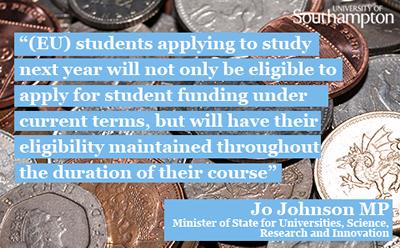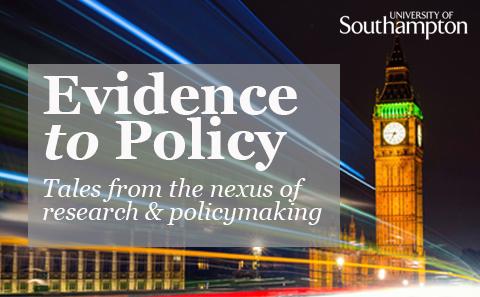
More Higher Education Digest
Catch up with all the Higher Education Digest edition's since January 2016

Highlights from this month's Higher Education Digest include:
1. The Higher Education and Research Bill completed the Committee Stage in the House of Commons on 18 October. The Bill has been scrutinized line by line by a Committee of MPs. A number of amendments have been made, although these were relatively minor and all proposed by the Government. None of the proposals from the opposition members of the Committee were accepted.
2. In November the Bill is expected to move fairly quickly to the Report Stage (where all MPs on the floor of the House can debate it, and propose amendments), which will immediately followed by the Third Reading, which is the final stage in the House of Commons. Given events so far, it seems unlikely that there will be significant amendments to the Bill at the Report Stage, but many of the concerns raised may be taken up once the Bill moves to the House of Lords.
3. It is likely to be the New Year before the Bill completes its passage through the House of Lords.
4. The Government announced on 11 October that non-UK EU students applying for university courses starting in 2017 will have the same access to student loans for the duration of their course, even if the UK exits the EU during that period.
5. On 31 October, HEFCE released guidance and metrics to enable universities to apply for TEF Year 2. The deadline for applications is 26 January 2017.
6. On 20 October, Universities UK published the report from its taskforce looking at violence against women, harassment and hate crime on campus. The report recommended that universities should:
7. In addition, the report also recommended that Universities UK should:
8. Following the publication of the Stern Review in July on recommendations for the next REF, Universities Minister Jo Johnson has written to Lord Stern accepting the recommendations and has asked HEFCE and its devolved equivalents to develop detailed plans for implementing them. A consultation on this is expected in November 2016.
9. In her speech to the Conservative Party Conference on 4 October, Home Secretary Amber Rudd announced that the Government would be consulting on tightening the rules for international student visas. The consultation will “ask what more can we do to support our best universities - and those that stick to the rules - to attract the best talent, while looking at tougher rules for students on lower quality courses”. That consultation has yet to be published.
10. There were some suggestions from Chancellor Philip Hammond during October that the position of international students within net migration figures was being reviewed, but this was then subsequently ruled out by No.10.
11. HESA is carrying out a major review on improvements to the Destinations of Leavers of Higher Education (DLHE) survey. In October they published an analysis of the responses to their consultation, which showed very strong support for the continuation of a graduate destinations survey, supplemented with linked data such as data from tax records and study data from HESA. There was agreement that new member of success were needed to complement the current use of Standard Occupational Classification, but no consensus on what those measures should be. There was a preference to extend the period after graduation at which the survey is taken from six months to 12 month or more.
12. HESA will be using the results of the consultation to develop a proposal for a new survey and implementation plan, which they will publish for consultation later in 2016.
13. HEFCE have published an analysis of graduate satisfaction with undergraduate choices, using data from the DLHE Longitudinal Survey, taken 40 months after graduation. The data show that whilst the majority of graduates are satisfied with both their choice of subject and institution, 32% of graduates would have chosen a different subject and 21% a different institution. The data also show that the proportion of BME student who would have made different choices is significantly higher than for other students. Mature graduates are more satisfied with their choices that young graduates.
14. On 26 October, the Department for International Development (DfID) launched its Research Review, which sets out the department’s research priorities over the next four years and how it will focus £390M per year of research and innovation funding. There are five priority themes:
15. In advance of a debate in the House of Lords on 3 November on the implications of Brexit for universities and scientific funding, the House of Lords Library has produced a comprehensive briefing note on the issue. This provides both a briefing on how universities and UK science are currently funded, and Brexit implications for that relating to both EU students and EU research grants.
16. Universities UK published the report of its Social Mobility Advisory Group on 10 October. The Advisory Group notes all the evidence that shows that socio-economic disadvantage continues to be the most significant driver of inequality in terms of access to and outcomes from higher education. It also notes gaps in university and labour market outcomes between disabled and non-disabled graduates, and between white and BME graduates. The report also notes geographical “cold spots” where participation in HE is low. Some of the recommendations included:
17. The Higher Education Academy published a report on 20 October on research into the difference in understanding of “teaching excellence” in different disciplines. Key conclusions from the report included:
18. The Government has published a document setting out the vision, principles and governance of UK Research & Innovation, the new body being established under the Higher Education & Research Bill, which will comprise the 7 Research Councils, Innovate UK, and the research functions of HEFCE. It confirms Government support for Dual Support and the Haldane Principle, and sets out the UKRI board and senior management structure. They have published a separate factsheet on what these changes mean for Innovate UK.
19. The Higher Education Policy Institute (HEPI) have published a paper by Bill Rammell (a previous Science Minister and now a VC) called Protecting the Public Interest in Higher Education. The paper argues that some of the changes proposed in HE as part of the Higher Education & Research Bill will make the university system focus too much on competition and not enough on public benefits. It has a number of recommendations, including a broader recognition of the civic benefits of higher education and changes to the new Office for Students to take greater account of the public interest. It also recommends tighter restrictions on obtaining degree awarding powers and university title.
20. Five new Chairs to House of Commons Select Committees were elected in October, following incumbents becoming Ministers or Shadow Ministers. The new Chairs are:
Gavin Costigan
Director of Public Policy | Southampton

Catch up with all the Higher Education Digest edition's since January 2016

Introducing Evidence to Policy; a new space to muse on the intersection of academia and policymaking...